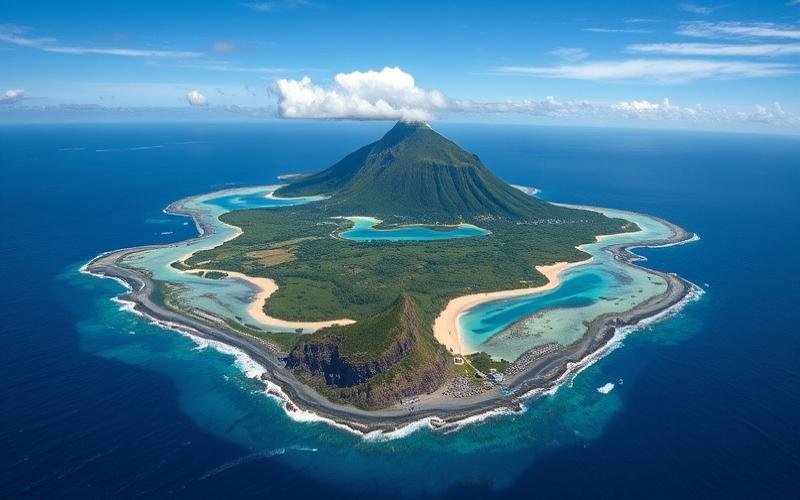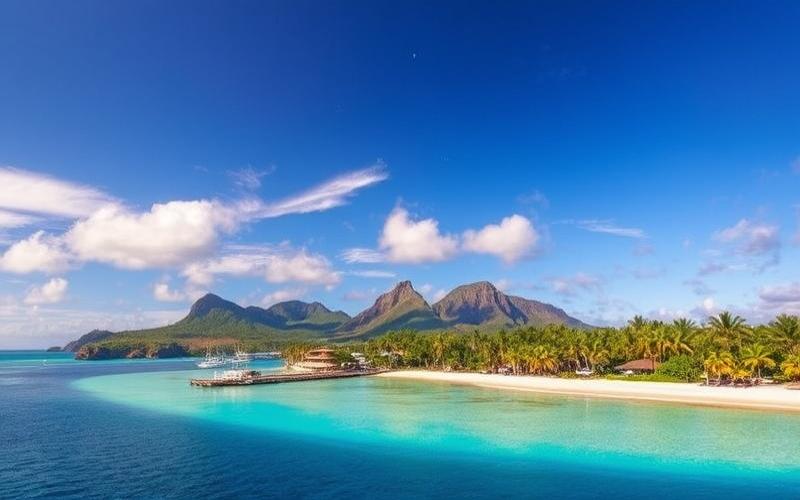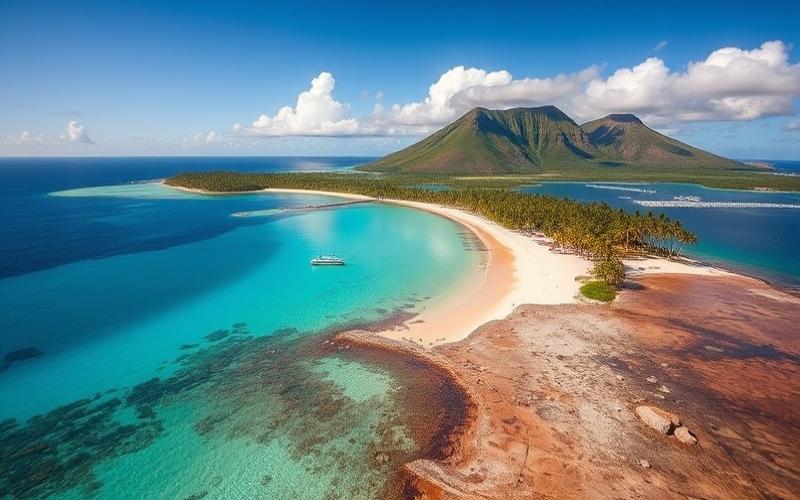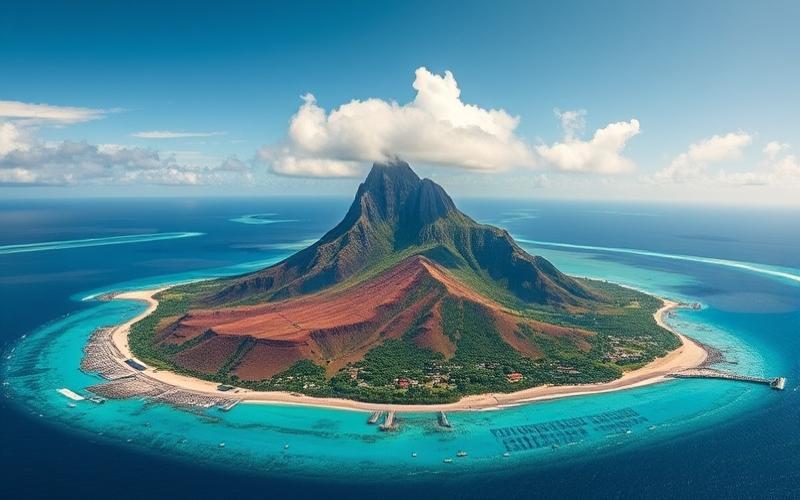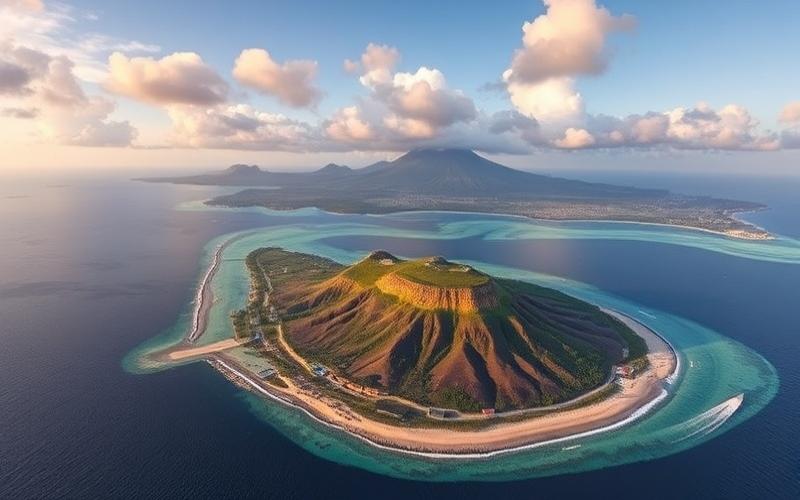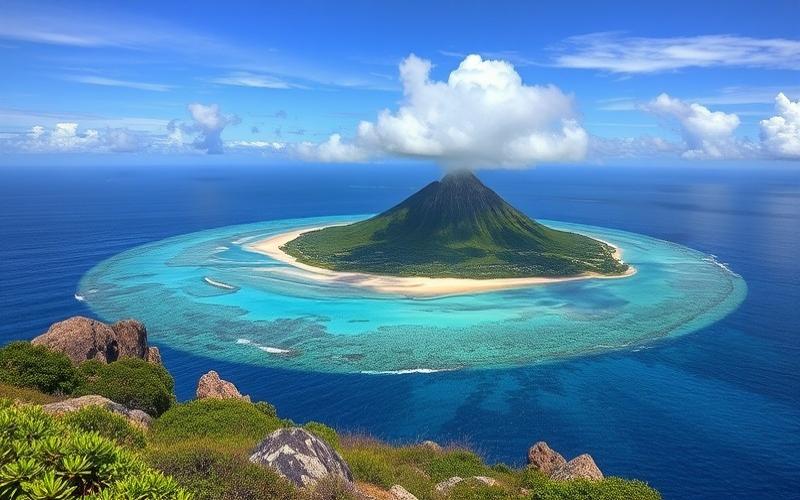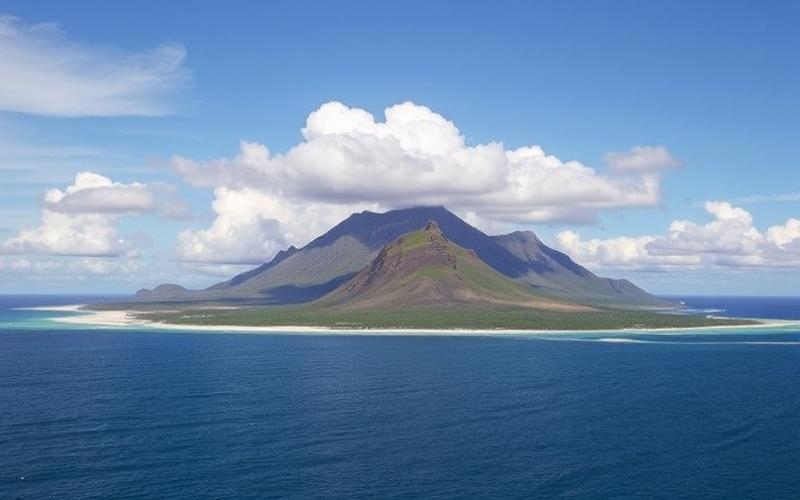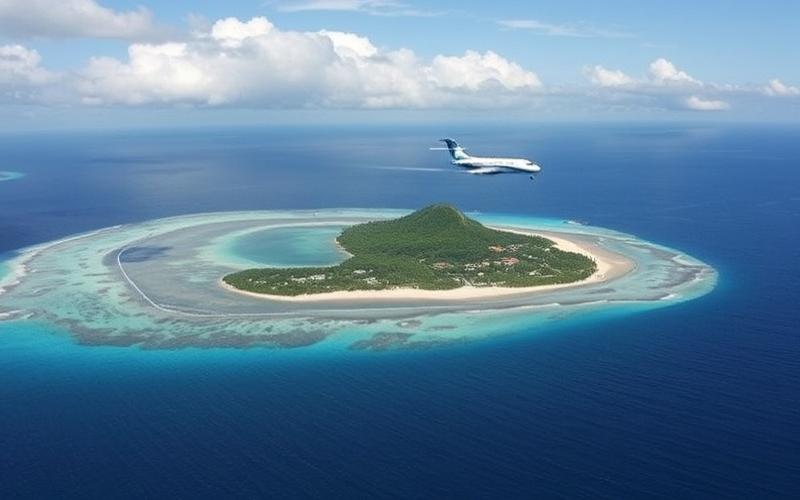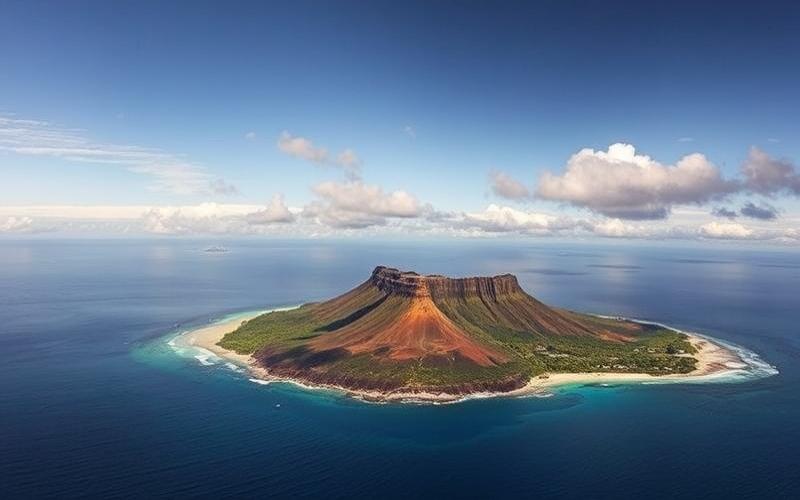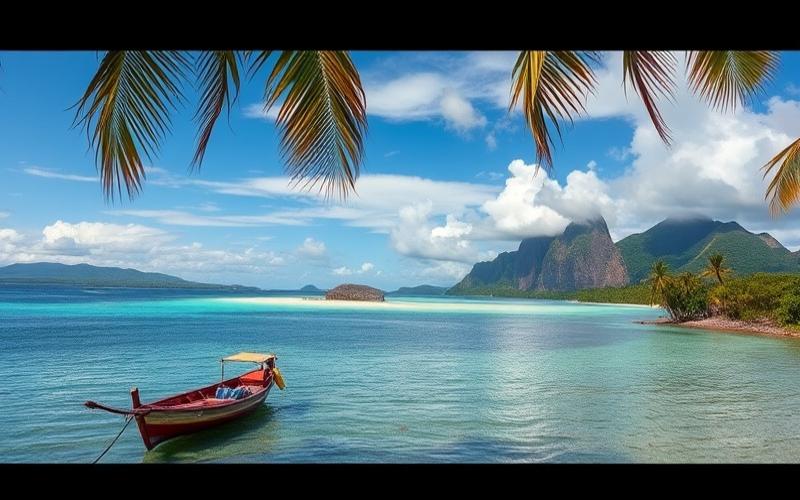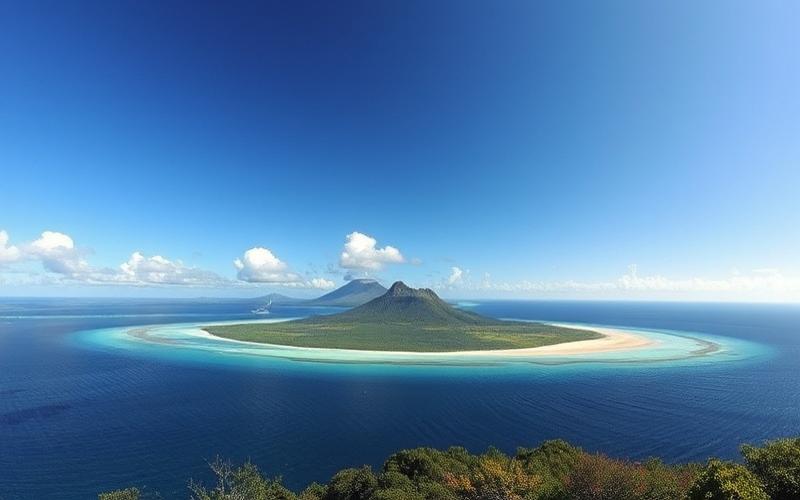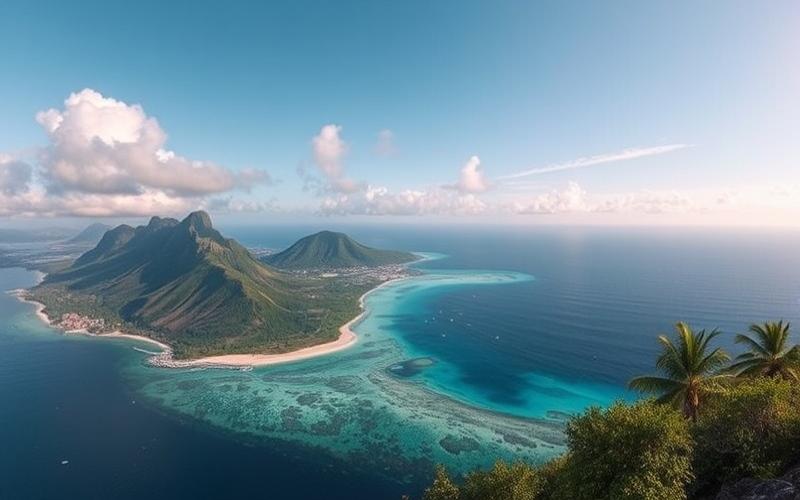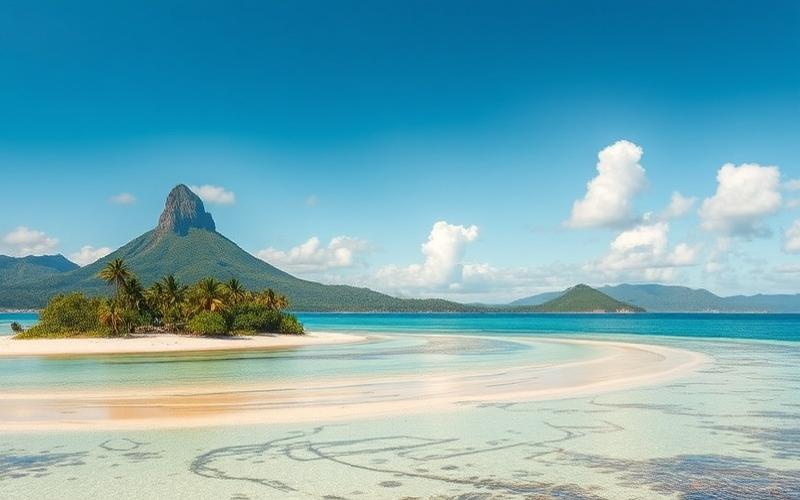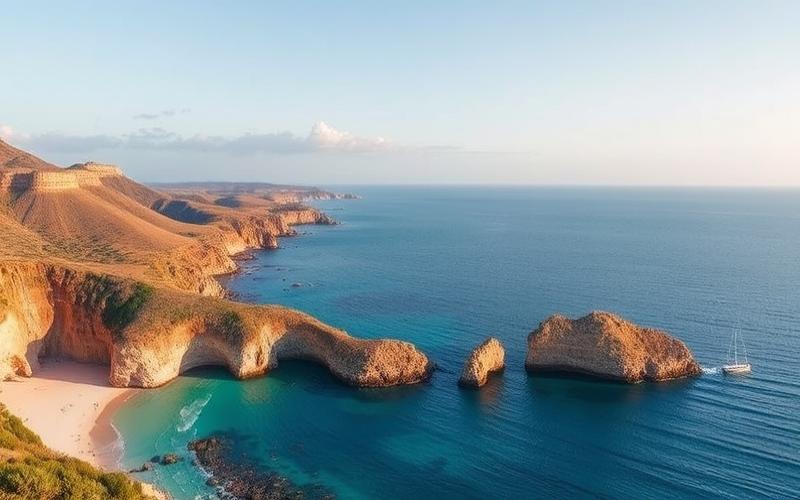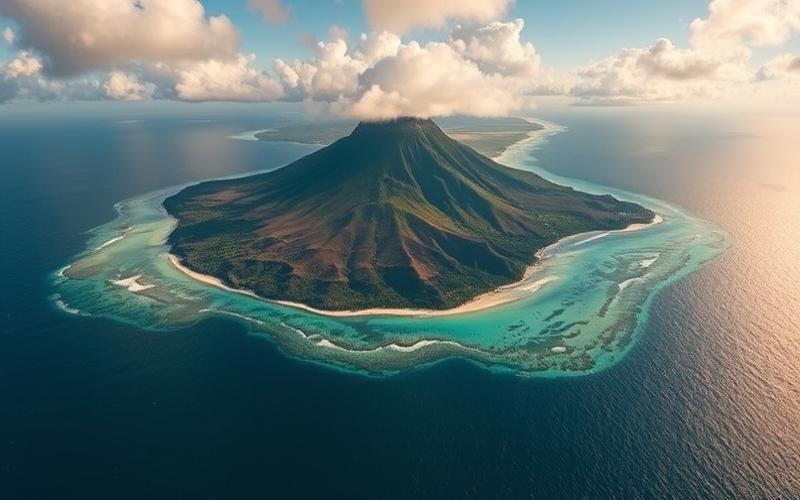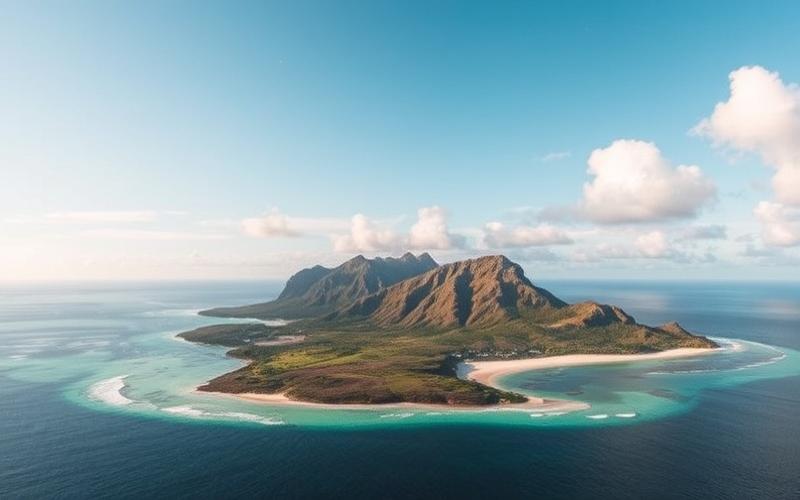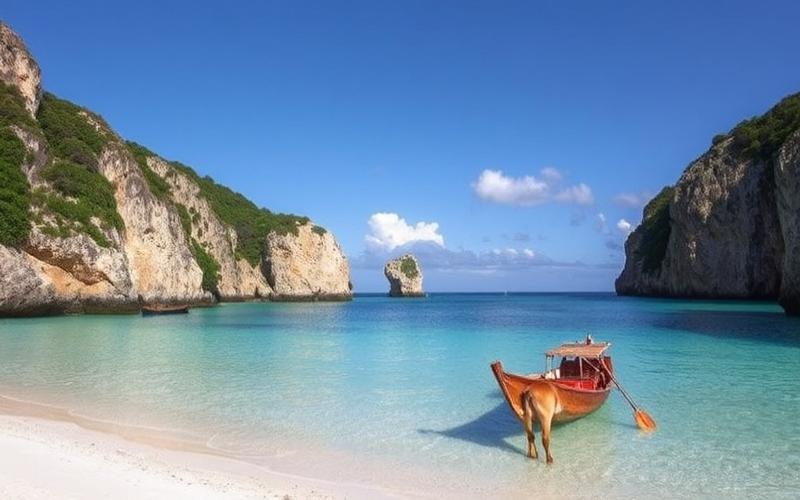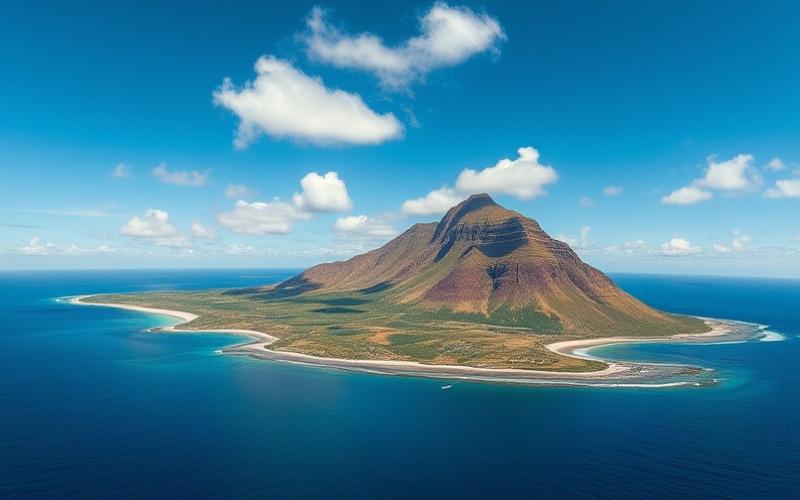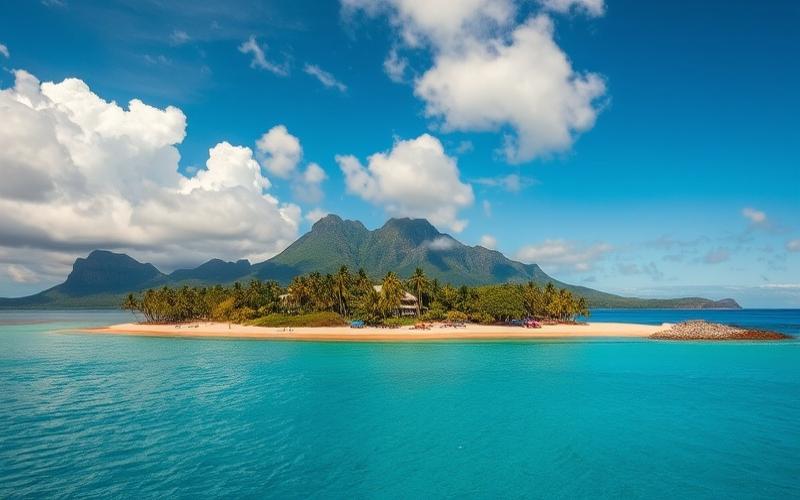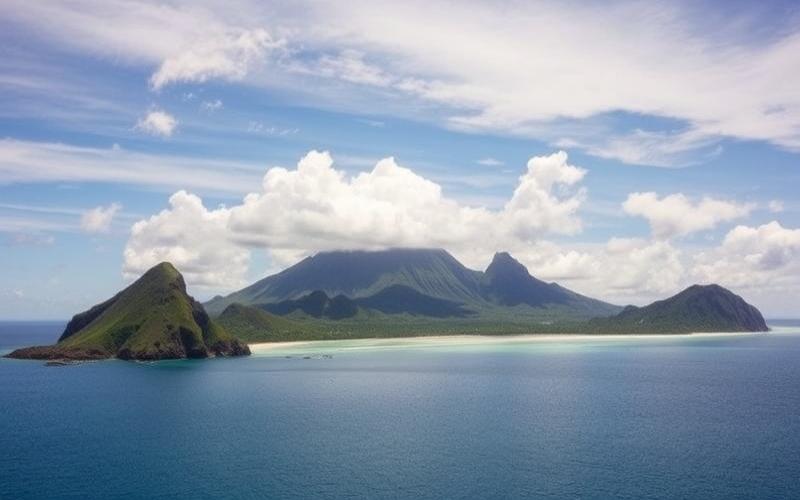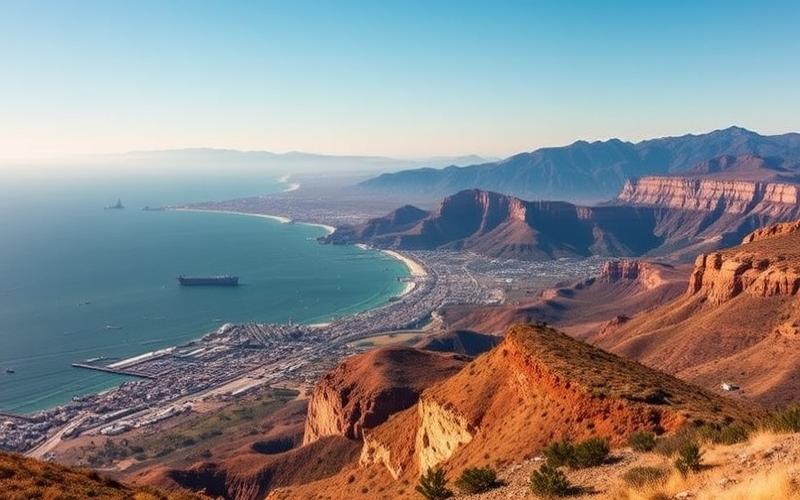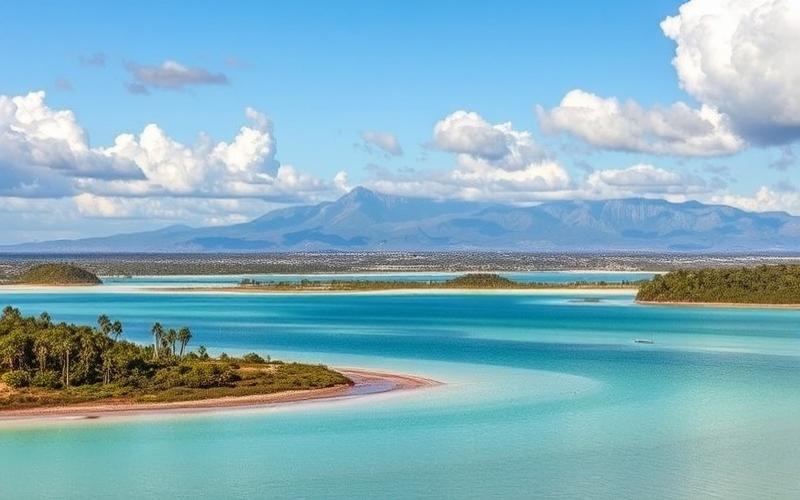
 Published on and written by Cyril Jarnias
Published on and written by Cyril Jarnias
In a world where real estate investment has become an essential strategy for diversifying assets, Mauritius stands out as a prime destination, often compared to its Indian Ocean neighbors.
Between attractive tax benefits, idyllic living conditions, and Mauritius’s developed infrastructure, it’s essential to understand what makes it captivating compared to opportunities offered by neighboring countries.
This article explores in detail the specifics of the Mauritian real estate market against its regional competitors, highlighting the key differences and offering an informed perspective for those looking to invest wisely in these paradise regions.
Mauritius and Its Neighbors: A Real Estate Comparison
| Destination | Average Price per m² (Residential) | Available Property Types | Access for Non-Residents | Potential Return | Quality of Life, Infrastructure, and Access |
|---|---|---|---|---|---|
| Mauritius | €2,500 to €8,000 (depending on location and project, premium villas up to €10k/m²) | Apartments, single-family homes, RES/IRS/PDS villas, building plots | Specific programs for foreigners (RES, IRS, PDS), purchase possible with minimum investment; full ownership possible in some cases | Dynamic market but high prices; decent rental returns in tourist or high-end sectors | Very good quality of life; modern infrastructure (recognized private healthcare), international schools; direct air connectivity to Europe/Africa/Asia |
| Seychelles | €2,500 to €3,500 on average for an apartment in Anse Royale; single-family homes more expensive depending on location | Rare apartments outside hotel projects or high-end residences, mainly villas on Mahé/Praslin/La Digue; limited plots | Strong restrictions: acquisition through state-approved programs or via local companies; complex and selective process | Limited opportunities due to land scarcity and high-end tourist demand | Exceptional natural beauty but limited infrastructure compared to Mauritius/Réunion; less frequent air access |
| Madagascar | About three times cheaper than mainland France (prices vary widely by city/neighborhood) | Spacious villas in main city Antananarivo, simple/modest urban apartments; numerous plots | Non-residents cannot buy directly: must go through a local company or long-term leasehold | High theoretical yield (>12%), especially in office/commercial or urban residential rental | Insufficient infrastructure in many places outside the capital; attractive natural setting but security/networks need improvement |
| Réunion | Average around €3,000–€4,000/m² depending on urban/coastal area | Creole single-family homes/recent subdivisions/urban apartments/beach villas popular with French investors | Non-EU residents can buy without major restrictions | Moderate market stability: steady growth without speculative surge | Excellent French tropical quality of life: efficient hospitals/French-language schooling/European infrastructure/international airport |
Main Differences Between Real Estate Markets
Price per Square Meter
Prices are generally highest in Mauritius and Seychelles for premium residential. Madagascar shows the lowest rates but with a marked gap in infrastructure.
Types of Offerings
Mauritius offers the widest range thanks to IRS/RES/PDS schemes. Seychelles favors exclusive luxury. Réunion remains classic in its residential offerings while Madagascar stands out with its affordable large spaces.
Regulations for Non-Residents
Mauritius facilitates purchase under conditions. Seychelles imposes strict restrictions except for targeted exceptions. In Madagascar, direct purchase is prohibited for foreigners, while in Réunion there are almost no barriers for European nationals.
Expected Return
Madagascar promises the best gross return due to low initial cost but exposes more to political/safety risks. Mauritius attracts a stable international clientele despite sustained prices, resulting in moderate yield except for strategic rental/touristic positioning.
Overall Attractiveness
Mauritius combines attractive taxation/modern infrastructure/administrative ease that appeal to both expatriates and long-term investors.
Seychelles targets an ultra-premium segment seeking rarity/luxury/preserved environment.
Madagascar mainly attracts based on cost/space/potential return—but requires increased vigilance.
Réunion guarantees stability/European jurisdiction/efficient public services/French-speaking tropical environment.
Visual Summary
Mauritius stands out as the ideal compromise between legal accessibility/administrative ease/diversified offerings/secure investment, while each neighbor responds more to a specific niche: Seychellois ultra-luxury vs. Malagasy gross return vs. secure Réunion family setting.
Good to Know:
Real estate in Mauritius, with an average price around €2,500 to €5,000/m², stands out with a varied offering, including luxury apartments, single-family homes, and building plots, and is accessible to non-residents through the Property Development Scheme. In contrast, Réunion has similar prices but imposes more restrictions for foreigners, although it benefits from robust infrastructure and a high standard of living due to its French departmental status. Seychelles show higher prices, often over €5,000/m² for high-end properties, with stricter foreign purchase laws, often limiting full ownership. Madagascar, with much lower costs, under €1,000/m², offers great opportunities, but its restrictive laws for non-residents and infrastructure condition require careful study. In terms of return, Mauritius suggests promising economic stability and accessibility facilitated by its international connections, while its neighbors offer various levels of appeal based on accessibility and advantageous policies.
Tax Advantages of Mauritius Compared to Its Neighbors
| Country | Tax Rate on Property Income | Capital Gains Tax | Main Tax Incentives for Foreign Investors | Bilateral Tax Treaties | Overall Annual Tax Burden (Real Estate Investor) |
| Mauritius | Flat 15% | None | Residence permit via investment, partial exemption, no wealth tax or real estate wealth tax, no inheritance tax; access to certain labeled IRS/RES/SCS/PDS projects to obtain residence | Extensive network (over 40 countries); avoids double taxation and facilitates fund repatriation | Low: single rate, no tax on capital gains and real estate transfer |
| South Africa | Progressive up to 45% | Up to 18% | Few specific incentives for foreigners; worldwide taxation | Yes, but less favorable | High: high taxation of rental income and capital gains |
| Seychelles | Approx. 15-33% depending on status | Up to 27%, various possible indirect taxes | Resident status by investment but high cost | Medium to high: rental taxation higher than Mauritius | |
| Madagascar | Variable depending on resident/non-resident status | Taxable capital gain | Limited incentives; complex administrative procedures | Less developed | Variable: charges often unpredictable |
Tax Rates in Mauritius
- Single flat tax of 15% applied to income from properties held by residents and non-residents alike.
- No tax on capital gains when reselling the property.
- Complete absence of classic annual property tax or additional local tax.
Specific Tax Incentives
- Possibility to obtain a residence permit with an investment in a labeled IRS/RES/SCS/PDS project meeting the regulatory minimum threshold.
- No inheritance tax or real estate wealth tax.
- Complete absence or strong reduction of taxes when legally repatriating funds from either rents or upon sale.
Bilateral Tax Treaties
Mauritius has signed over forty treaties aimed at avoiding double taxation. This allows:
- Avoiding a foreign investor paying tax twice (in their country and on the island).
- Facilitating secure transfer of received rents as well as proceeds from a sale to the main residential country.
Synthetic Comparison with Regional Neighbors
Key takeaway:
Mauritius combines a low single rate, complete absence of taxation on capital gains, and a broad international treaty network. The overall result is generally a lower annual tax burden for a foreign real estate investor compared to neighboring jurisdictions where high progressive taxation, systematic capital gains taxation, and fewer treaty benefits accumulate.
Savings are particularly significant at the level of:
- Net rental income after taxes
- Complete or near-complete absence of levies in case of resale
- Administrative ease linked to clear tax status
For any international investor seeking legal/fiscal stability and wealth optimization in the Indian Ocean, the Mauritian advantage therefore remains marked.
Good to Know:
Mauritius stands out with significant tax advantages for real estate investors compared to its neighbors. It is characterized by a relatively low tax on property income, with a fixed rate of 15%, which is often more competitive than those of neighboring countries. Moreover, capital gains realized from the sale of real estate properties are generally tax-exempt, which is attractive for investors looking to maximize their profitability. The island also offers tax incentives such as exemption from inheritance tax and deductions for investment-related expenses. Thanks to bilateral tax treaties, Mauritius has concluded agreements to avoid double taxation with many countries, thus facilitating international investment flows. In terms of overall annual tax burdens, investors benefit from a stable and predictable fiscal environment, often more advantageous than in many neighboring states, making it a preferred destination for real estate purchase in the region.
Taxation: Mauritius in Comparison with Neighboring Countries
| Country | Income Tax (Individuals) | Corporate Tax | Real Estate Capital Gains Tax | Specific Real Estate Taxes |
|---|---|---|---|---|
| Mauritius | 15% (progressive up to 20% beyond a certain threshold) | 15% standard, 5% solidarity levy > Rs 24M profits/year | No tax except special conditions (10% in case of quick resale or under certain schemes) | No property tax or residence tax; VAT refundable for some new purchases; registration duties generally at 5% |
| South Africa | Progressive up to ~45% | Approx. 27% | Yes, between 7.5% and more depending on duration and amount | Progressive transfer duties, annual property tax, other local taxes |
| Seychelles | Progressive up to ~30-33% | Around 25-33% | Yes, variable rates | High registration duties (~6%), annual property tax |
| Madagascar | Progressive up to ~20-23% | Approx. 20-23% | Yes | Registration duties (2 to 6%), local property tax |
Main Tax Advantages in Mauritius:
- Single or low rate for income and corporate taxes.
- Near-total absence of real estate capital gains taxation outside particular situations.
- No annual taxes like property/residence tax.
- Several treaties against double taxation with dozens of major partner countries.
- Attractive schemes for non-residents: investor permit allowing tax residence under simple conditions.
Detailed Comparison of Tax Incentives
Mauritius
- Stable and predictable tax regime: linear tax from the first euro earned then slight progressivity beyond Rs24M/year
- Total or partial exemption possible through treaty mechanisms if foreign tax residence
- Special programs (IRS/PDS/RES/Smart City Scheme…) open to foreigners with full rights attached to the property
- Partial VAT refund possible when buying new from approved developer before mid-2025
South Africa
- Heavy taxation at top of scale + extended capital gains taxation
- Significant local taxes that can heavily impact gross profitability
Seychelles
- High overall taxation for residents and non-residents alike
- Substantial fees during real estate transfers
- Few or no effective bilateral agreements against double taxation
Madagascar
- Moderate taxation but less transparent administration
- Less structured and secure for international investment
- Relatively high weight of local ancillary fees
Tax Impact on Real Estate Appeal
The near-total absence of recurring taxes along with moderate taxation are two major assets that place Mauritius well ahead of its regional neighbors. Investors benefit from:
- Better long-term financial visibility,
- Reduced fees both during acquisition and holding,
- Increased security thanks to international agreements.
In comparison:
- South Africa offers a vast market but is fiscally dissuasive in case of high appreciation,
- Seychelles remains expensive both to buy and hold,
- Madagascar is accessible but less secure legally/fiscally.
Summary – Impact on Final Choice
Mauritian taxation constitutes a decisive argument in an international wealth strategy: it allows legal optimization while benefiting from a stable framework. This differential explains why many investors primarily choose the island over neighboring markets despite sometimes a higher average ticket.
Good to Know:
In Mauritius, income tax for individuals is set at a single rate of 15%, while corporate tax is also at 15%, which is generally lower than in South Africa where personal tax rates can reach 45% and corporate tax 28%. Seychelles applies a progressive rate up to 33% on personal income and 30% on corporations, while in Madagascar, rates can go up to 20% for individuals and 20% for corporations. Regarding real estate transactions, Mauritius imposes a 5% tax on the transaction value, which can be an advantage compared to higher transfer fees in South Africa that can reach 13%. Mauritius’s tax advantages include double taxation treaties with over 40 countries and tax incentives such as capital gains tax exemption for non-residents, strengthening its appeal to international investors. These tax aspects often make the island more favorable compared to its neighbors, influencing investors’ decision to prioritize real estate acquisition there.
Disclaimer: The information provided on this website is for informational purposes only and does not constitute financial, legal, or professional advice. We encourage you to consult qualified experts before making any investment, real estate, or expatriation decisions. Although we strive to maintain up-to-date and accurate information, we do not guarantee the completeness, accuracy, or timeliness of the proposed content. As investment and expatriation involve risks, we disclaim any liability for potential losses or damages arising from the use of this site. Your use of this site confirms your acceptance of these terms and your understanding of the associated risks.

